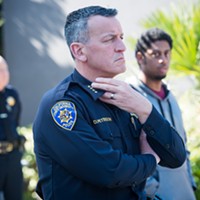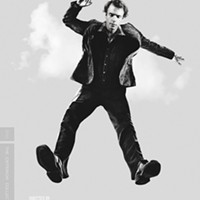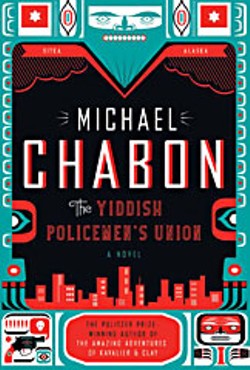[
{
"name": "Top Stories Video Pair",
"insertPoint": "7",
"component": "17087298",
"parentWrapperClass": "fdn-ads-inline-content-block",
"requiredCountToDisplay": "1"
}
]
by Various Authors
Here are my favorites of the year. I don’t claim they’re the best, because I obviously can’t read everything. (I do try, though.) Potentially worthy candidates such as Denis Johnson’s Tree of Smoke and Ben Ratliff’s new book on John Coltrane remain on my shelf unread to taunt me into the new year.
The Yiddish Policeman’s Unionby Michael Chabon. Chabon’s tale of a sad-sack detective solving a murder in the far north reads like an episode of Northern Exposureco-written by Raymond Chandler, Philip K. Dick and Leo Rosten. In telling his alternate history where Alaska is the Jewish homeland, Chabon painstakingly creates the world of Sitka and its denizens and subcultures, and spins a gripping yarn that holds a warped mirror to our own world with style and panache. A zaftig novel that’ll make you kvell.
Kill All Your Darlings:* *Pieces 1990-2005 by Luc Sante. Sante’s essays take on the gentrification of New York City, the roots of American music and his own childhood, all with equal verve. He has an insider’s ear for speech and an outsider’s appreciation of the dark neglected corners of culture, as well as a concision of style second to none.
The Rest is Noise: Listening to the Twentieth Centuryby Alex Ross. The classical music critic of the New Yorker chronicles the way history and aesthetics collided in the last century, from Strauss and Mahler to Stockhausen, Steve Reich and John Adams. Ross is such a generous storyteller that you often don’t even realize that he’s breezily leading you through some of the most daunting music of the 20th century. Far from being a snob, he takes pains to point out the back-and-forth feedback loop between pop and classical music, and how both fed the other creatively. This is an ambitious cultural history brilliantly told through the lens of music.
Smells Like Dead Elephants: Dispatches from a Rotting Empire by Matt Taibbi. In his latest collection of political pieces from Rolling Stone, Taibbi takes Hunter S. Thompson’s gonzo torch and runs with it, though with slightly more sober and enlightening results. From corruption in Congress to the tragic events of Hurricane Katrina and Abu Ghraib, Taibbi is there with a clear eye and a sharp tongue. His constant cynicism occasionally grates, but his anger is usually aimed at the right targets, and he has a gift for invective that at its best rivals that of his hero H.L. Mencken.
Shortcomings by Adrian Tomine. Tomine is perhaps the subtlest comic artist working today, both in his writing and art, and this graphic novel is the book that he’s been working toward for the past decade. The coming of age story of Ben Tanaka, a defensive, insecure young Asian American, obviously shares some parallels with Tomine’s own life. Unlike many other young autobiographical comics creators who think that just being honest is enough, Tomine is also a shrewd observer of human nature and character who has the crucial discipline to transform experience into art.
Flight by Sherman Alexie. This year saw the death of the great Kurt Vonnegut, and Alexie’s story of a young Indian man “unstuck in time” to various scenes of war and violence throughout history is a fine tribute to Vonnegut’s seemingly simple non-linear storytelling style and bleak humanism. An affecting parable about the psychic cost of violence.
The Braindead Megaphone by George Saunders. Saunders is that rare bird, a satirist with heart. In this, his first collection of non-fiction, he patrols the border with the Minutemen (and tries his best to understand them), visits the Mideast theme park for the super-rich in Dubai and goes to Nepal to visit a boy who is claimed to be the reincarnation of the Buddha. There are also appreciations of Saunders’ satiric precursors Mark Twain, Kurt Vonnegut and Donald Bartheleme, and several Swiftian modest proposals including “Manifesto”, which is one of the best pieces Saunders has ever written. In the title essay he lays out a metaphor for the current media environment that is spot-on. A grab bag from one of America’s finest writers.
Zeroville by Steve Erickson. A writer of startling originality and imagination, Steve Erickson has flown under the radar for most of the two decades he’s been publishing novels, but this might be the book that changes that. It’s the story of a “cineautistic” ex-seminary student named Vikar who wanders into the violent aftermath of the ’60s in L.A. Vikar becomes a film editor, and develops a unique metaphysics of the movies.Zeroville is at once a great surrealist novel and a documentary portrait of the chaos of the post studio era in Hollywood in the ’70s.
Crooked Little Vein by Warren Ellis. A twisted little piece of dark satire from the author of Transmetropolitan. Like Michael Chabon, Ellis bends the detective genre to his own purposes. Detective Michael McGill is sent on a quest for the hidden constitution of the U.S. by the president’s heroin-addicted chief of staff. What ensues is a weird trip through the sexual underbelly of America. What it lacks in verisimilitude it more than makes up for in audacity. It’s also hellishly funny.
God is Not Great:* *How Religion Poisons Everything by Christopher Hitchens. Hitchens backed himself into a corner with his support of the disastrous Iraq war, but here he’s back at his best, defending freethinking atheists from the forces of unreason. There are few writers alive who can match Hitchens’ slashing rhetoric in full flight, especially when logic is on his side, as it is here. His blunt title ensures that he’ll make few converts to his point of view, but God is Not Great is a bracing tonic for fellow unbelievers.
Speaking of Review
-

Hungry For Love
Dec 3, 2020 -

HSU Independent Review of UPD 'Uncovered Organizational Issues' Within the Department
Jun 17, 2020 -

And Everything is Going Fine
Nov 28, 2013 - More »
more from the author
-
Going Clear: Scientology, Hollywood and the Prison of Belief
By Lawrence Wright - Knopf
- Mar 28, 2013
-
Best Books: 2012
- Dec 27, 2012
-
Telegraph Avenue
By Michael Chabon - Harper
- Oct 4, 2012
- More »
































